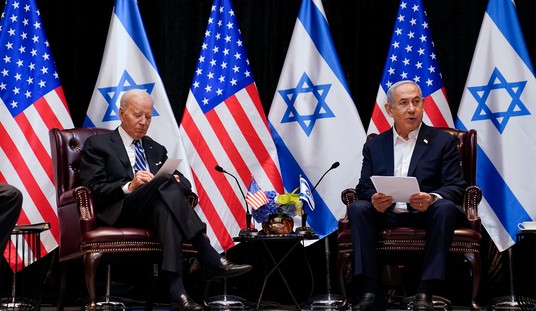“We don’t have to be imprisoned by the past,” said President Obama last week, while announcing that Cuba and the United States had reached an agreement to end Cuba’s diplomatic isolation.
The U.S., he says, will soon open its embassy in Cuba, and Cuba will open its embassy in Washington, D.C. After all, Obama said, Cuba’s isolation began in 1961, the year he was born, and for many Democrats, liberals, and much of the business community and the farm lobby, it is time to let bygones be bygones and to end the embargo imposed by the United States half a century ago.
Obama continued:
Our nations are separated by only 90 miles, and there are deep bonds of family and friendship between our people, but there have been very real, profound differences between our governments, and sometimes we allow ourselves to be trapped by a certain way of doing things.
In other words, we should not be held captive by the shibboleths of the past. That’s standard progressive thinking — we must move with the times, and understand that the old ways of thinking are obsolete. Said Obama: “Americans and Cubans alike are ready to move forward.”
Those who agree with Obama’s opening to Cuba make the following arguments: the embargo hasn’t worked; the U.S. is only isolating itself; and the embargo has given Castro an excuse to blame Cuba’s tribulations and basket-case economy on the United States. To again quote Obama: “When something isn’t working, we can and should change.” In this, he has the support of the business community. A group called “Engage Cuba” is working with Procter & Gamble, Cargill, and the National Association of Manufacturers to establish lobbying for an end to the embargo. A vice president of the international division of the Chamber of Commerce has said:
There are so many state, local and federal entities that are going to be working to lift the embargo, and you start with travel … but you also need to keep your eye on the big picture.
They are pushing the additional argument that the influx of American tourists, combined with the new ability of American business to openly invest in Cuba and freely sell its products to the Cuban populace, will work to promote democratization and social change. Without this new interaction by business and vacationers, the Cuban regime will remain repressive.
All these arguments are highly tendentious and questionable.
Let us look first at whether or not it’s true that the embargo has been a failure. As Cuban writer Humberto Fontova points out, the purpose of the embargo was to put a monkey-wrench into Cuba’s sponsorship of international terrorism and the export of its revolution, not to interfere with its internal arrangements or to promote regime change. Towards its intended goal, it was more than successful. After Che Guevara’s dismal failure to foment revolution, Castro ordered an end to the formal spreading of revolution.
Nevertheless, even today Cuba funds terrorist groups like Colombia’s FARC, and has recently tried to smuggle arms to North Korea. Most of the Cuban people, especially its brave dissident community, favor keeping the embargo as a means to pressure the government to ease up on its repression of human rights at home.
Journalist Michael J. Totten, who originally believed the embargo should be ended, changed his mind after traveling to Cuba for World Affairs Journal. Totten explained:
After spending a few weeks in Cuba in October and November, however, I came home feeling less certain that the embargo was an anachronism. The ailing Fidel Castro handed power to his less ideological brother Raúl a few years ago, and the regime finally realizes what has been obvious to everyone else for what seems like forever: communism is an epic failure. Change is at last on the horizon for the island, and there’s a chance that maybe — just maybe — the embargo might help it finally arrive.
Totten cited an interview he held with the Cuban exile Valentin Prieto, who argues that the U.S. should not promote, fund, assist, or legitimize a regime that is repressive. Totten concluded:
Cuba’s Communist Party would rather rule alone in a poor country than share power in a prosperous one. No matter what the United States does or does not do, Cuba will underperform until that changes.
It is the embargo kept in place that will, Totten thinks, force them to choose prosperity or power.
Let me single out a common argument (quoted here) made by former Republican Governor of Illinois George Ryan, who favors lifting the embargo. Said Ryan:
I think we ought to treat Cuba like we do any other country in the world … our biggest commodity is democracy, and we ought to be spreading that any place we can. And what made this country great is free trade.
This leads to the second point in the arsenal of arguments by Obama’s supporters — that an influx of investments and tourists will help change Cuba. Are we really spreading democracy by promoting a surge of tourists, most of whom will go for Potemkin-style tours and time spent in luxury hotels on Varadero Beach?
Clearly, Obama is replicating his policy towards Iran in Cuba. In both cases, he seeks rapprochement without demanding any change for the better within the two countries.
In Iran, he seeks to accept a very bad nuclear deal rather than no deal, and never thinks of including Iran’s horrendous violations of human rights and hegemonic attempts to be the main power in its region of the world as something to be included in the terms of a deal.
Have our relations with China helped to spread freedom in that Communist nation?
Just last week, the Chinese government announced a new security rule, meant to bolster Communist rule and power by strengthening the security apparatus and the military. China’s new president, Xi Jinping, is taking the playbook from Mao and returning to enforcing ideological control, especially by monitoring their cultural institutions and workers.
We have had decades of an opening to China, and obviously it is has had little effect towards limiting the strength of the Communist Party and its single-party rule.
One must recall that in Soviet Russia, during the brief turn to capitalism in the 1920s known as the New Economic Policy or NEP, which was undertaken to prevent the economy from collapsing, the Bolsheviks increased repression and the role of the state security forces in order to prevent ideological weakening taking place as a result of the economic liberalization. As China also proves, no amount of economic liberalization has had a positive effect when it comes to any attempt to loosen the grip of the Party’s totalitarian mechanism.
In a hard-hitting editorial, the Washington Post editorial board takes note that in the first six months of Obama’s engagement with Cuba, “most indicators of human rights on the island have moved in the wrong direction.” Since last December, there have been 3000 political detentions, accompanied by beatings by government-organized thugs who are employed to attack democracy activists. While American visitors have increased by one-third, there was a 120 percent increase in Cubans fleeing to our country in the same time period.
The Post editors understand that Obama gave the Cuban regime everything it wanted without demanding anything in return. He did not even ask for “modest alleviation of the dictatorship’s repression in exchange for … a political and economic bailout of a failing regime.”
Perhaps that is because, like the Castroite communists, Obama also believes that all of Cuba’s failures stem from the imperial hegemony of the United States in this hemisphere. Why didn’t Obama even call for cessation of the arrests and beatings of the “Ladies in White,” who demonstrate each Sunday on behalf of freedom for political prisoners? Not only has the regime not treated them better, it has increased its attacks on them. This pattern of conduct by the Raul Castro government is likely to continue, given the nature of America’s concessions to the dictatorship.
It is the Cuban leaders and the Castro brothers who will be smiling when the American flag is hoisted upon the reopened embassy, with John Kerry doing the honors. And to his shame, President Obama himself has let it be known that he, too, will soon be traveling to Cuba. Does anyone really think this will be a victory for the United States?
I’m sure Fidel and Raul Castro are laughing together, raising their glasses and making a toast to their new Yanqui friend in Washington.








Join the conversation as a VIP Member